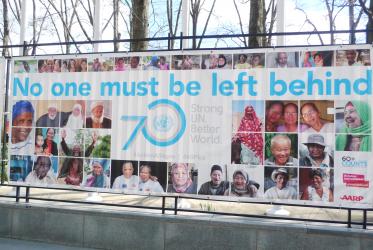Displaying 21 - 28 of 28
International affairs facilitator reflects on pilgrimage
31 March 2016
Religious leaders as agents of peace in the Americas
02 March 2016
Symposium focuses on religion, violence, extremism
04 February 2016
Indigenous faith leaders reflect on resilience and climate change
23 September 2014





